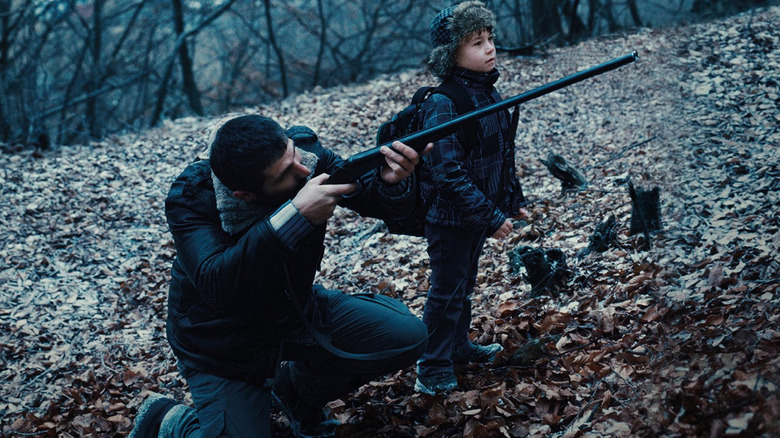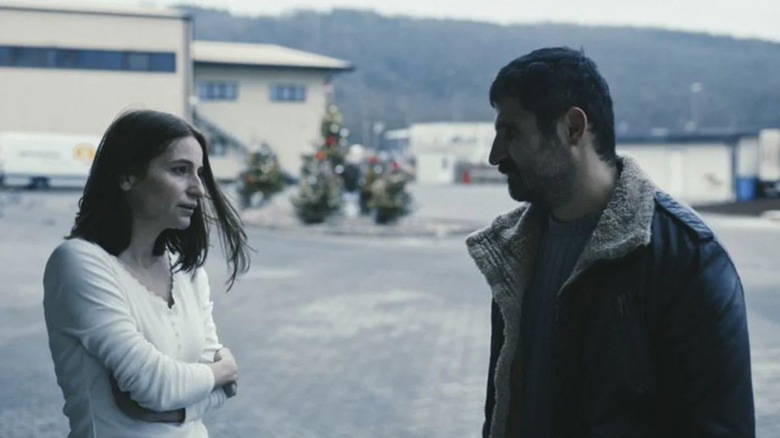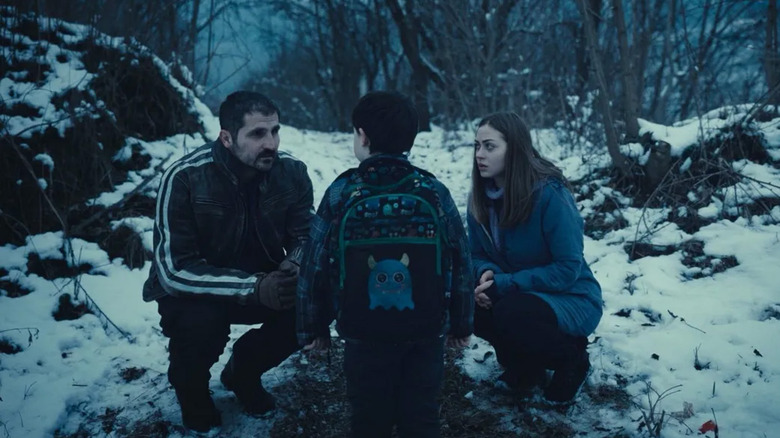R.M.N. Review: A Boiling Pot Of Xenophobia Laid Bare [Cannes]
There's a gloomy discontent in "R.M.N." — a feeling of dread hiding just beneath the surface. Director Cristian Mungiu taps into a feeling of underlying xenophobia that remains pervasive across certain parts of Europe. It's a feeling we know all too well in the UK.
"R.M.N." largely focuses on the fear of the outsider as a small multi-ethnic region in Transylvania struggles to get to grips with who they despise the most. A vein of nationalism runs through their community, and when Matthias (Marin Grigore) returns home to the region, he's met with some of the very attitudes he's been trying to avoid. Matthias lost his job in a German slaughterhouse after assaulting a foreman who used racist slurs against him. But a cold reception when he returns to his hometown exposes some truths others would rather remain hidden.
Matthias is having an affair with a chic Hungarian woman, Csilla (Judith State). Of course, his wife (Macrina Bârlădeanu) knows what's going on ... but it's more than that. Csilla has brought a workforce of Sri Lankans to the region to run her fancy new bakery, and the locals are up in arms, even though none of them wanted those jobs anyway. It's the age-old argument of bigots and racists that's expertly laid bare by Mungiu in this gripping, darkly foreboding drama of a village on the brink of eating itself alive. And that's only the start of Matthias' problems.
A scientific examination of racism
Although it may sound like a straight-up drama about a migrant workforce, "R.M.N." is far more subtle than that. A brain scan (or RMN in Romania) reveals that Matthias' father is very sick. His father's condition proves to be yet another pervasive fear for Matthias. It's also an interesting allegory for the examination of social division in their village, as a nebulous invading condition that creeps through the community at large.
It's here that Mungiu's storytelling really shines as he builds up layers upon layers of symbolism. "R.M.N." is a deeply concerning, pessimistic story that provokes discussion of xenophobic attitudes that have come to light across Europe. The "othering" of a race of people such as the Sri Lankans is a bold move, reflecting the community's innate preference to blame its problems on everyone else.
And then there's the story of Matthias' son. Rudi (Mark Blenyesi) witnesses something in the woods, something so terrible that it stuns him into completely shutting down, losing his voice in the process. Again, it's a neat bit of symbolism that lets Mungiu examine how we perceive external dangers in the community. And though we never quite know what Rudi saw, there's always the possibility that the thing that goes bump in the night is just nature's way of reminding us to band together.
Unfortunately, this small community won't listen. Instead, the quarreling locals take every chance they get to pounce on the outsiders, throwing insults and derisions at both the Sri Lankans and the French researcher who's monitoring the town's bear population.
A stark warning about social division
Ultimately, "R.M.N." has a lot to say about xenophobic attitudes, and with a beautifully stark Transylvanian backdrop, it's easy to get lost in the grim grandeur of it all. One particular scene exposes the true heart of the community's darkness — a lengthy, excruciatingly tense town hall discussion is Mungiu's show-stopping highlight. A single, unbroken shot that hangs in the air for almost 20 minutes, it's an unsympathetic dissection of the village's increasingly persistent racist paranoia.
And with several things going on all at once, it'll have you on the edge of your seat. Matthias exemplifies the tensions we see throughout, played pitch-perfectly by Grigore. A man on brink of ruin, his financial strain is carried on his shoulder wherever he goes, with toxic masculinity and shows of abusive, brutal male strength the only outlet for his frustrations.
"Beware of wild animals," reads a sign seen early in the film. That warning resonates throughout "R.M.N." and is again a wonderful symbol of the strife carried throughout the film. But it's even more poignant in the film's final act, which goes to some surprisingly strange places.
One thing's for certain — "R.M.N." is by no means a pedestrian affair, with Mungiu's mastery of the Transylvanian landscapes the perfect backdrop for the exploration of some heavy issues. There's a lot to unpack by the time the credits roll. But it's deserving of every stray thought you'll return to in the days after watching it.
/Film Rating: 7 out of 10
"R.M.N." premiered as part of the Cannes Film Festival 2022.


